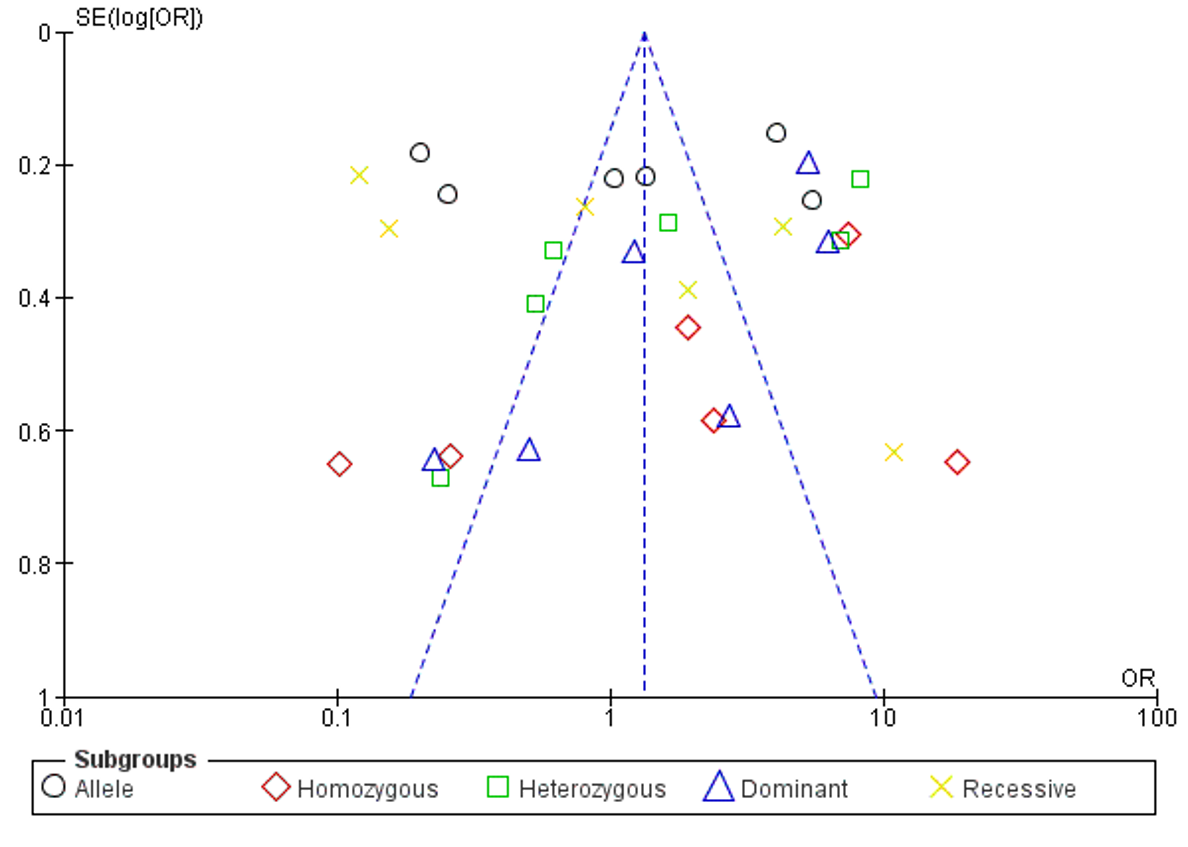Genetic predisposition of interleukin-6 (rs1800797) polymorphism in cervical cancer: A Meta-analysis
DOI:
https://doi.org/10.15419/bmrat.v11i3.872Keywords:
Cervical cancer, Meta-analysis, Polymorphism, SNP, geneticsAbstract
Background: Cervical cancer is a significant health burden, especially in less developed countries with limited access to HPV vaccines and screening. Dysregulation of immune cells, interleukin-6 (IL-6), and proinflammatory mediators have been implicated in cancer progression. SNPs in the IL-6 gene are thought to influence cervical cancer. A meta-analysis investigated the relationship between the IL-6 rs1800797 polymorphism and cervical cancer risk.
Methods: We conducted data mining on the PubMed database to identify relevant studies meeting specific criteria, including genotype data for IL-6 rs1800797, publication between 2015 and 2023, and reporting covariate risk factors. The meta-analysis comprised six publications focusing on the polymorphism at rs1800797 in IL-6 associated with cervical cancer.
Results: None of the five genetic models studied proved a significant link between the IL-6 rs1800797 polymorphism and cervical cancer risk. Because it included data from many ethnic groups, some racial groups may not experience the same consequences as others, based on this meta-analysis. The research revealed substantial heterogeneity. Egger's test and sensitivity analysis showed no evidence of publication bias.
Conclusion: Based on this comprehensive meta-analysis, we find no evidence that the IL-6 rs1800797 polymorphism contributes substantially to cervical cancer risk. However, further study is needed to investigate possible connections with additional IL-6 polymorphisms and the interplay between genetic and environmental variables in the development of cervical cancer. Identifying reliable tumor markers for cancer therapy remains an important area of investigation.

Published
Issue
Section
License
Copyright The Author(s) 2017. This article is published with open access by BioMedPress. This article is distributed under the terms of the Creative Commons Attribution License (CC-BY 4.0) which permits any use, distribution, and reproduction in any medium, provided the original author(s) and the source are credited.
